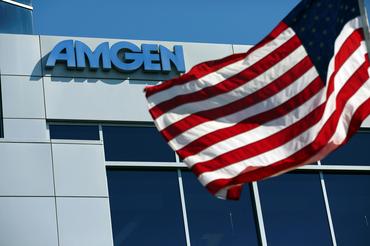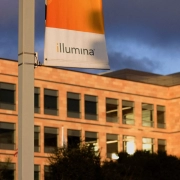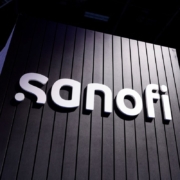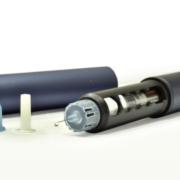Analysis: Amgen’s antitrust woes spur wider pharmaceutical deal fears
Analysis: Amgen’s antitrust woes spur wider pharmaceutical deal fears
NEW YORK, May 17 (Reuters) – Investors are scrambling to assess the fallout of a U.S. regulatory challenge against Amgen Inc’s (AMGN.O) proposed $27.8 billion acquisition of Horizon Therapeutics Plc (HZNP.O), with some fearing a spillover to other big deals in the drug sector.
While investors are accustomed to regulators under U.S. President Joe Biden citing potential harm to consumers in objecting to many large mergers, the U.S. Federal Trade Commission’s (FTC) lawsuit filed on Tuesday surprised those who had brushed off the antitrust risk in Amgen’s deal because of its limited business overlap with Horizon.
Shares of Seagen Inc (SGEN.O), which Pfizer Inc (PFE.N) agreed to acquire for $43 billion in March, dropped 6% to $187.64, a big discount to the $229 per share all-cash deal price, on concerns that U.S. regulators could challenge this combination as well.
Smaller biotech firms that are waiting for deals to be completed, including Prometheus Biosciences Inc (RXDX.O) which agreed to sell itself to Merck & Co Inc (MRK.N) for $10.8 billion, and IVERIC bio Inc (ISEE.O), which clinched a $5.9 billion sale to Astellas Pharma Inc (4503.T), posted narrower stock losses of between 1% and 2%.
Even shares of drug companies that do not have pending deals but are seen by analysts and investors as potential acquisition targets were hit. BioMarin Pharmaceuticals Inc (BMRN.O), Alnylam Pharmaceuticals Inc (ALNY.O) and Sarepta Therapeutics (SRPT.O), which are all worth more than $10 billion, saw their shares drop between 3% and 7%.
Spokespeople for all of the companies either declined to comment or did not respond to requests for comment. FTC officials did not respond to a request for comment on whether they planned to challenge any other pharmaceutical acquisitions.
“The FTC filing a lawsuit to block (the Amgen) deal will dampen M&A enthusiasm across the biotech sector, particularly given the lack of direct portfolio overlap between Amgen and Horizon,” William Blair analysts wrote in a note.
FOCUS ON ‘BUNDLING’
The FTC said it opposed the deal because it was concerned that Amgen could use rebates to pharmacy benefit managers – middlemen who oversee drug benefits for employers and insurers – in exchange for promoting Horizon’s two key products, to the detriment of rivals seeking to compete on price.
The products are fast-growing thyroid eye disease treatment Tepezza and gout drug Krystexxa.
Seeking to thwart a deal based on the potential for this “bundling” practice is a novel approach that regulators had not previously deployed in antitrust cases, analysts and legal experts said.
Amgen has said that neither it nor Horizon plan to bundle, and the experts said this line of attack stood a strong chance of being shot down in court.
“I don’t think (the FTC lawsuit) changes anything long term,” said one of several Jefferies analysts on a conference call the brokerage hosted for clients on Tuesday to discuss the implications of the regulators’ move.
Nonetheless, the prospect of other deals facing regulatory challenges spooked investors. Their focus is on Seagen, a major cancer drug developer, whose acquirer, Pfizer, already has some overlap in its product portfolio and pipeline.
While Pfizer does not possess the drugs that Seagen specializes in, which combine synthetic antibodies with potent chemicals, the drug giant has a robust portfolio of more than 20 approved cancer medications.
“We could see similar challenges to the Pfizer/Seagen deal” BMO analysts wrote in a note, arguing that the FTC could target other major drug companies with the resources to engage in bundling.
UNDER THE RADAR
Conversely, investors and analysts are hoping that smaller pharmaceutical acquisitions will continue to fly under the radar of regulators. This is why the shares of such companies that have pending deals dropped much less on Tuesday.
Of the 11 acquisitions of publicly listed biotech companies announced since the start of the year, only Pfizer’s acquisition of Seagen was worth well in excess of $10 billion.
“Thawing of interest in mega-deals would invariably shift consolidation focus to smaller and earlier-stage biotech companies – and more of them,” Evercore analysts said in a note.
Our Standards: The Thomson Reuters Trust Principles.
Source: Reuters










